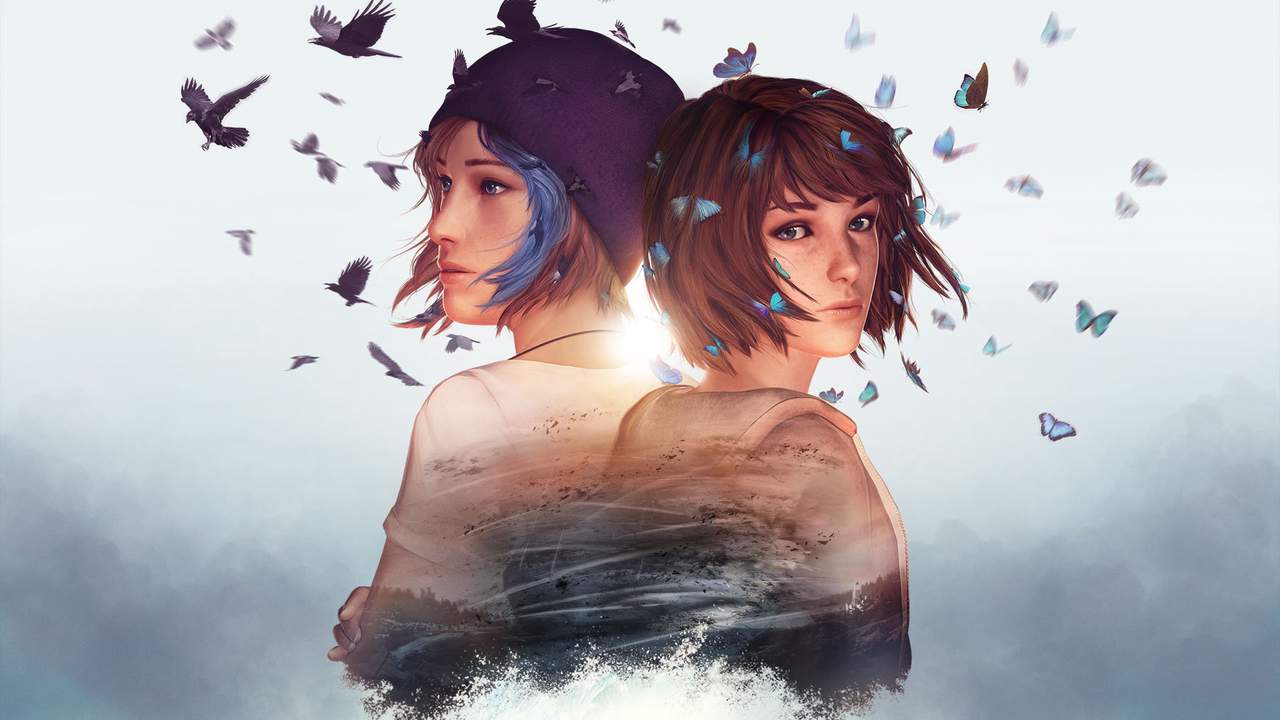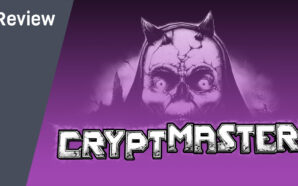I saved Alyssa from being hit by the football. I saved Alyssa from being hit by the roll of toilet paper. I saved Alyssa from being splashed by the car. I saved Alyssa from being pushed into the pool. And then, when it really mattered, did I save Alyssa from the burning building? No, of course not. I let her die. Now it’s not that Max, the playable protagonist of Life is Strange, wants Alyssa to die. In my mind she’s distraught. But while I control Max’s movements, hear her thoughts, and choose her course of action, I’m not really Max when playing Life is Strange.
 Now, Life is Strange a narrative game where the player can control, to a degree, the outcome of events, so in actuality I’m the storyteller and I want the most dramatic story I can conjure. I had Max save Alyssa each time knowing that, come the final episode, I was going to have Max watch her die. It’s dark but that’s the story I want. Max’s inability to save her friend the one time it meant life or death is a cosmic joke and thematic statement I wanted to make in my playthrough. Max is failing and struggling and can’t save everyone. On the path to the ending, my ending, she learns a vital lesson from Alyssa’s death.
Now, Life is Strange a narrative game where the player can control, to a degree, the outcome of events, so in actuality I’m the storyteller and I want the most dramatic story I can conjure. I had Max save Alyssa each time knowing that, come the final episode, I was going to have Max watch her die. It’s dark but that’s the story I want. Max’s inability to save her friend the one time it meant life or death is a cosmic joke and thematic statement I wanted to make in my playthrough. Max is failing and struggling and can’t save everyone. On the path to the ending, my ending, she learns a vital lesson from Alyssa’s death.
Life is Strange is an emotional experience. It’s perhaps the game I became most invested in on my first playthrough. I fell in love with the characters, the story, and the melancholic atmosphere that makes you want to cry and smile simultaneously before spending the next week listening to nothing but Phoebe Bridgers and not getting out of bed. For years the game has been a story I experienced and remembered from Max’s point-of-view. But when playing the recently-released remastered version I thought I’d take on a new outlook. I realised I wasn’t playing the narrative but rather the metanarrative, seeing the code and shaping the story towards specific outcomes I knew I could reach. I began to play like I was the storyteller.
 This isn’t a matter of whether I am invested in the story but rather where I am invested. I’m in Max’s shoes but her time travelling powers allow the player to be the architect of the story rather than just a piece. This balance of locked narrative, control, and player agency in video game storytelling to key to any game but is greatly expanded in a game where the player can rewind and do things over-and-over. Even so, I feel I separated myself from the story to an even greater degree than is expected when I let Alyssa die mainly as foreshadowing for another death at the end of the game. But playing the metanarrative is a dangerous game, trying to get into the heads of the developers who are trying to get into the player’s head. You’re liable to tangle yourself in logic knots over something as small as whether to water a plant or not. “Should I do this or do they think I think I should do this and so I shouldn’t?”
This isn’t a matter of whether I am invested in the story but rather where I am invested. I’m in Max’s shoes but her time travelling powers allow the player to be the architect of the story rather than just a piece. This balance of locked narrative, control, and player agency in video game storytelling to key to any game but is greatly expanded in a game where the player can rewind and do things over-and-over. Even so, I feel I separated myself from the story to an even greater degree than is expected when I let Alyssa die mainly as foreshadowing for another death at the end of the game. But playing the metanarrative is a dangerous game, trying to get into the heads of the developers who are trying to get into the player’s head. You’re liable to tangle yourself in logic knots over something as small as whether to water a plant or not. “Should I do this or do they think I think I should do this and so I shouldn’t?”
I have an outcome of my playthrough of Life is Strange that I want to reach but I want to characters to fight against it. Max struggles until she realises the one thing she has to do. The way I play, I have her go down temporal paths I know will result in failure just to rewind and choose others in order to build appropriate emotion and motivation. It’s dramatic, and that’s where the entertainment comes from on a rewatch, even if I’m seeing characters I love in distress. I’ll have David fail multiple times in his fight with Jefferson, have Max think she can’t win, only to then create the ultimate victory I already planned from the beginning. It’s so much sweeter because of it. The game is in love with Twin Peaks and counts the series as a key inspiration but was released before Twin Peaks: The Return aired so I try and pay homage to that show myself in how I play. One of the great pleasures/horrors of the final episode of that show is seeing Cooper totally at a loss, lost in slippery time and alternate realities with no fixed point (“what year is it?”), like Jeffries before him, and that’s the point I wanted Max to get to.
 I like unhappy endings, or rather bittersweet endings. Therefore, Chloe has to die. That’s always been the ending of the game for me, on my first playthrough and my latest. It’s what everything is driving to. In my eyes Max was given her powers in order to spend one last week with Chloe and discover truth about Amber, but it was never going to last. It can’t. You can’t go home again and Chloe’s death represents the death of Max’s youth and the end of all the guilt and complex feelings she has about it. Max is gifted a chance at personal closure through supernatural means. That’s what it always was: closure, not a new beginning. I wanted to play this as a realisation to Max as the game concludes. Kate is able to be saved, barely, but Chloe is one step too far. Of course, I also played the game as a love story between Chloe and Max, having them kiss with the storm raging behind them, just to make the moment as dramatic as possible. It was heartbreaking and emotional the first time I played it but I was cackling like a mad man this latest time, knowing I had shifted all the pieces into place for the most dramatic ending possible.
I like unhappy endings, or rather bittersweet endings. Therefore, Chloe has to die. That’s always been the ending of the game for me, on my first playthrough and my latest. It’s what everything is driving to. In my eyes Max was given her powers in order to spend one last week with Chloe and discover truth about Amber, but it was never going to last. It can’t. You can’t go home again and Chloe’s death represents the death of Max’s youth and the end of all the guilt and complex feelings she has about it. Max is gifted a chance at personal closure through supernatural means. That’s what it always was: closure, not a new beginning. I wanted to play this as a realisation to Max as the game concludes. Kate is able to be saved, barely, but Chloe is one step too far. Of course, I also played the game as a love story between Chloe and Max, having them kiss with the storm raging behind them, just to make the moment as dramatic as possible. It was heartbreaking and emotional the first time I played it but I was cackling like a mad man this latest time, knowing I had shifted all the pieces into place for the most dramatic ending possible.
Max having to let Chloe die is everything the game is driving towards, at least when I play it, and I’m always curious when people choose the other outcome, Chloe over Arcadia Bay. I’m deeply moved by Chloe’s death, even on this godlike playthrough it’s hard not to be affected when Foals’ Spanish Sahara starts playing, and I wish under other circumstances Max and Chloe could have stayed together. But it’s just so deliciously dramatic to have her die! I want to feel as much as possible with the ending, no matter the emotion, good or bad. In this case, a sad ending is a good and satisfying ending. I feel that people miss the point if they save Chloe. Storytelling is all about conflict and consequences and I wanted Life is Strange to be the best story it could be. I played the game as if I was adapting the game as a television show, writing and directing it on the fly, playing to an imaginary audience, rather than simply pretending to be Max Caulfield. Like I was the storyteller rather than the player.
Do you play narrative games in a similar way or am I a gaming psychopath? Let me know in the comments and be sure to geek out with me about TV, movies and video-games on Twitter @kylebrrtt.








